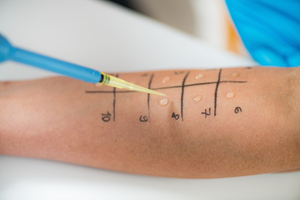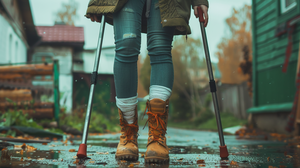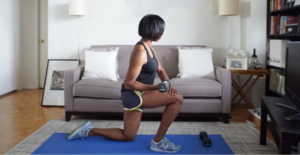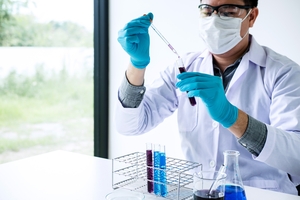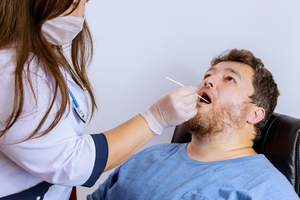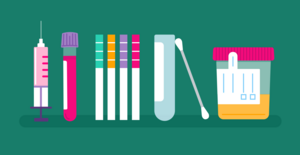Drug Test near me
Own a clinic? Add your location.
Help patients book appointments with you on Solv. It's free!
14 instant-book locations
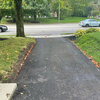
Integrative Wellness Center
Integrative Wellness Center

Quest Diagnostics
Quest Diagnostics
Self-pay pricing
Clear self-pay prices
No more surprise bills. Solv is committed to making getting healthcare as easy as buying groceries at the store, including knowing the price of care upfront.

Labcorp, Columbus
Labcorp




Quest Diagnostics
Quest Diagnostics
Self-pay pricing
Clear self-pay prices
No more surprise bills. Solv is committed to making getting healthcare as easy as buying groceries at the store, including knowing the price of care upfront.

Quest Diagnostics
Quest Diagnostics
Self-pay pricing
Clear self-pay prices
No more surprise bills. Solv is committed to making getting healthcare as easy as buying groceries at the store, including knowing the price of care upfront.






Abbott Nutrition A Division of Abbott Laboratories
Abbott Nutrition A Division of Abbott Laboratories

Urgent Care 24/7, Columbus
Urgent Care 24/7
Fastest Labs, Columbus
Fastest Labs
Ohio Health Laboratory Services
Ohio Health Laboratory Services
Own a clinic? Add your location.
Help patients book appointments with you on Solv. It's free!
About Drug Tests
Drug tests are used to screen for the presence of illegal or prescription drugs in urine, blood, hair, sweat, or saliva. The most common variety of drug screening is urine testing, however, blood and hair tests are still frequently used for specific purposes. Home drug test kids usually only screen for one or few substances such as marijuana, methamphetamine, and opiates like heroin or cocaine, while lab-based drug tests can detect more than one type of drug, as well as alcohol.
Seeing how drug screening is used to determine whether an individual has used drugs or alcohol, these tests are used for multiple purposes. Most commonly they are used by employers prior to hiring decisions being made or as an on-going condition of employment. Additionally, sports organizations often test for performancing-enhancing drugs and other banned substances. Law enforcement and courts use drug testing for both criminal and civil cases. Finally, if you've been prescribed an opioid by your healthcare provider, your doctor may order a drug test to ensure you are receiving the correct dose of your medication.
The process of a drug test is really simple and it requires no preparation and involves no risk. For a urine test, which is the most common, the test will basically consist of providing a urine sample in a lab or medical office. The steps are as follows:
- Wash your hands thoroughly, and clean your genital area with a cleansing pad provided by the facility.
- Begin urinating into the toilet, then move the collection cup under your urine stream to collect at least two ounces of urine in the container. There should be markings on the cup to assist with measurement.
- When complete, properly seal the cup using the provided instruction, flus the toilet, wash your hands again, and return the specimen to the technician or healthcare provider as instructed.
A technician may be required to be present while you collect your sample, usually under instruction from law enforcement or a court. Make sure you follow all provided instructions in order for your test result to be valid and so you don’t have to repeat the process.
Drug Test FAQs
How much does a drug test cost?
In general, most drug tests cost between $25 and $100. When conducted at a doctors office you can expect to also add on an office visit charge or co-pay. At-home drug tests are also available and can cost less than $10, but are not as reliable. It really depends on what type of test you need. Check with your employer to see what their requirements are. They may even have a preferred lab or draw station they send you to.
Does insurance pay for drug tests?
If the drug test is a pre-employment requirement or required by your employer, your employer will cover the cost of the test and will usually send you to a specific lab or draw station to facilitate the test. Beyond that, drug tests are typically out of pocket, and therefore not covered by insurance. It is possible, depending on your plan, that you could submit the receipt to your insurance requesting reimbursement.
Does a failed drug test go on your medical record?
Generally speaking, the results of a drug test are kept confidential. The Equal Employment Opportunity Commission (EEOC) outlines that, "if the results of a drug test reveal the presence of a lawfully prescribed drug or other medical information, such information must be treated as a confidential medical record," and therefore not shared with your current or prospective employer.
Are home drug test kits accurate?
No at-home drug test is 100% accurate. Many factors could alter the results of an at-home test resulting in a false positive or false negative result regardless of the person's actual drug abuse. For instance, it is possible to test for the wrong drugs. Timing of the collection could be off and the drugs had not yet shown up in the urine at the time the sample was collected. It is also possible that the chemicals in the at-home test went bad if they were stored incorrectly or they passed their expiration date.
What is the most accurate drug test?
There are many different ways to collect a sample for a drug test including hair, salavia, and sweat, but blood tests are the most accurate. They are also the most invasive and costly given that they are processed by a trained phlebotomist and analyzed in a lab, and usually the variety that are required by serious employers.
What shows up on a drug test?
Most drug tests screen for multiple substances including both drugs and alcohol. Both blood and urine drug testing usually screens for amphetamines, methamphetamines, benzodiazepines, barbiturates, marijuana, cocaine, ecstasy, opiates, PCP, methadone, tricyclic antidepressants, and nicotine, in addition to alcohol.
How soon do drugs show up in blood?
Drugs and alcohol in blood are typically detectable within minutes to hours after consumption, depending on the drug and the dose. However, given that drugs rapidly metabolize and are eliminated from the body, blood tests generally offer a very brief detection window.
How soon do drugs show up in urine?
While it varies based on the drug and dose, usually drugs are traceable within urine tests within 1-3 days after last use. Opioids like heroin and oxycodone are usually on the shorter end of that range, while stimulants including cocaine, meth, and prescription medications are on the longer end.
How soon do drugs show up in hair follicles?
While both blood and urine drug tests, drugs and alcohol present and leave your system within a few days of last use. This is because drugs metabolize quickly and are eliminated by the body. Hair, however, holds onto drug use history much longer. A hair follicle drug test can detect repeated drug use up to 90 days beyond the last drug use.
Where can I get a blood test?
Drug tests are generally available at medical testing labs, urgent care centers, retail clinics, primary care doctor offices, and many local pharmacies. While walk-in appointments are typically available, booking a visit online will reduce your wait time and ensure you have your drug test results sooner. If your employer is requiring a drug test, consult with them first as they may have a designated place for you to get your drug test.

Updated on Jan 25, 2026
Related Searches
Sports Physicals
STD Testing
Strep Test
Allergy Testing
TB Test
Pediatric Urgent Care
COVID-19 Testing
COVID-19 Pill
Blood Test
Cholesterol Test
CMP Test
Glucose Test
Hepatitis test
Retail Clinic
A1C Test
Mono Test
RSV Test
Vitamin D Test
Urinalysis
Basic Metabolic Panel
Diabetes Test
Diagnostic Test
Pulmonary Function Test
DNA Test
H Pylori Test
Flu Test
Cigna Urgent Care
Blue Cross Blue Shield Urgent Care
Thyroid Test
Ear Wax Removal
Pregnancy Test
Urgent Care
DOT Exam
United Health Urgent Care
Lab Tests
Dermatologists
Aetna Urgent Care
Aetna Urgent Care
Blue Cross Blue Shield Urgent Care
Cigna Urgent Care
COVID-19
Flu
United Health Urgent Care
» All servicesEveryday Healthcare, Simplified
Expert advice to help you live your best life


